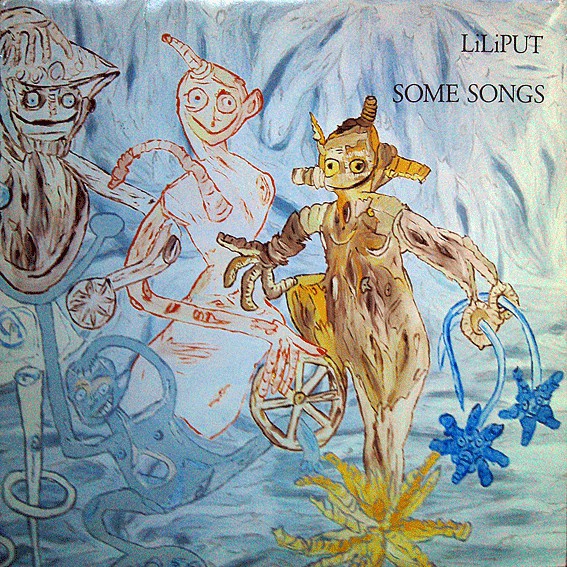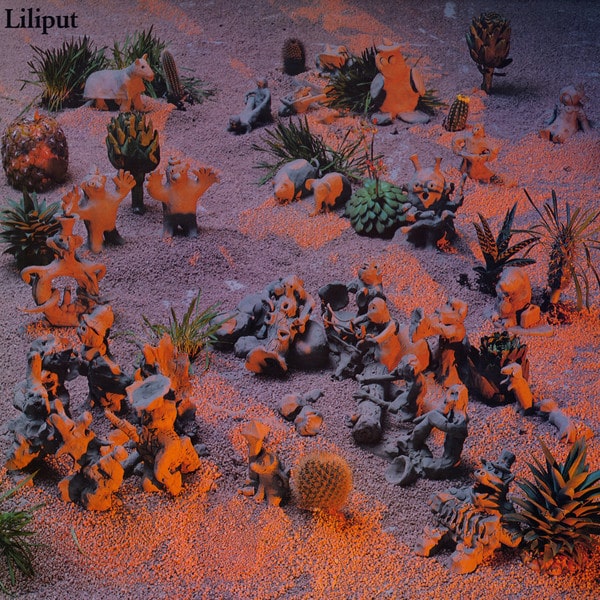Formed in 1978, the year of punk’s supposed death, the girls of Liliput (formerly known as Kleenex) apparently forgot to read– or more likely just ignored– the obituary.
Hardly taking the time to learn anything about playing music, Liliput spent even less time thinking about making music. Instead, they just did it, and although they were just as amateurish as the next punk group, Liliput managed to sound almost completely different than anything that came before them. Sure, there were bands that had similar sounds (ironically, two other extraordinary all-female bands: The Raincoats and The Slits), but no other punk band possessed such versatility. Listening to their two albums, 1982’s self-titled debut and 1983’s Some Songs, is like watching one of those 25 cent rubber balls bouncing around the room– you never know where it is going next or if it is going to break something.
In Liliput’s case, the ball breaks all the rules while touching on melody, quirkiness, experimentation, noise, viciousness, and all points in between– including a few not yet documented. If Liliput’s approach is something to praise, their sound becomes even more amazing when one considers how limited the band was in their technical capabilities. There is an underlying feeling of something primitive throughout both albums. Only a handful of chords are used and the drums never try to overpower. Nevertheless, Liliput proves that simplicity doesn’t always equate with ignorance. Their minimalism only helps to cut away at the pretentiousness that plagues other “art” bands. Sound overshadows technique, leaving the band to seemingly telepathically connect with each other.
Songs like “Igel” and “Turk” are interrupted with start-stop rhythms that are too nervous to be danceable. On “Ain’t You”, the band goes through time changes that would throw most groups off because they have taken the time to study the rules of music. Even the lyrics are incredibly simplistic, which is probably because the band neglects to use its native Swiss-German tongue. Instead, Liliput embraces the English language, even though their comprehension of it remains in question. Occasionally, this results in almost childlike imagery in songs like “Night Toad” and “Hedi’s Head”. Sometimes Liliput abandons words altogether in favor of just screaming out grunts, syllables, and vowels
(“Outburst” and “Krimi”).

Another aspect of Liliput is the remarkable amount of stylistic ground they cover. Although music histories will forever label Liliput as a punk band, one listen to their songs reveals they were much more. Certainly, the band has occasional moments of punk outburst (“Eisiger Wind” sounds ferocious enough to be on Never Mind the Bollocks) but never falls into a stereotype. The surfy “1978” is the sort of song that The Ventures would have played if they were the house band at Andy Warhol’s Factory. “When The Cat’s Away” sounds like a soundtrack to a whimsical fairytale while at the other extreme, “Tschik-mo” resonates as though it was part of an ancient ritual. The horns of “Split” bring to mind X-Ray Spex, while the violin on “Birdy” recalls The Raincoats. Liliput even embraces Buzzcocks-style pop on singalongs “Ain’t You” and “Hitch-Hike”.
Unquestioningly, Liliput was ahead of their time, and it is debatable whether or not music has caught up with them. Liliput’s minimalism found a place in the songs of many post-punk artists of the early ’80s, and their politics and courage can be seen as a major precursor to the riot-grrrl scene that introduced bands like Bikini Kill and Babes in Toyland. Of course, as is the case with many artists who break down new doors, Liliput was lost in the shuffle of the groups that followed in from behind. But that is what makes their releases essential. It is a chance to hear the future before it arrived.
